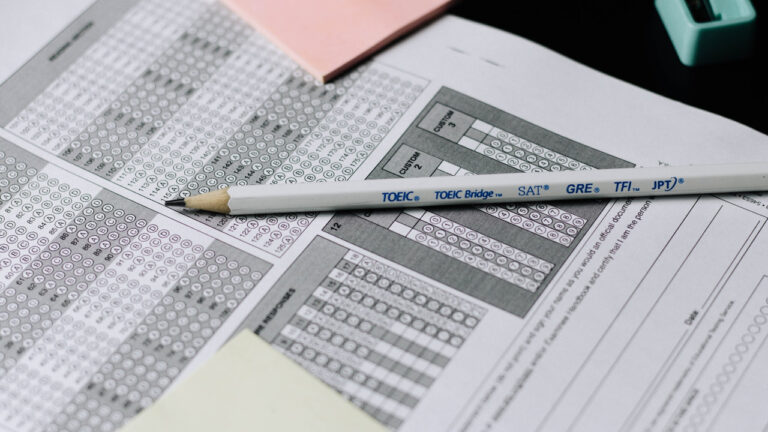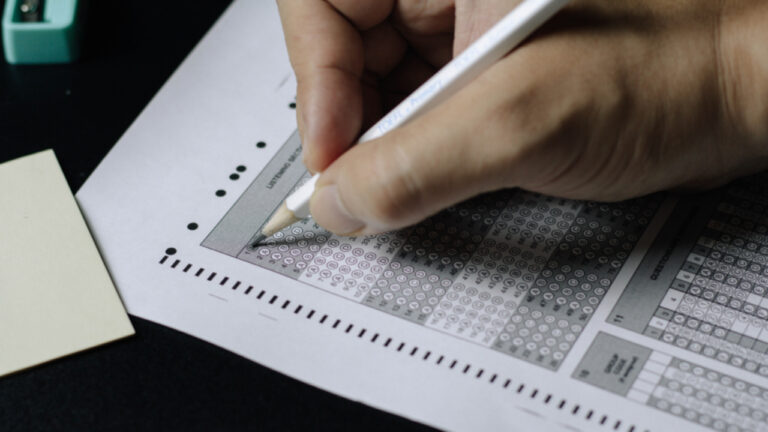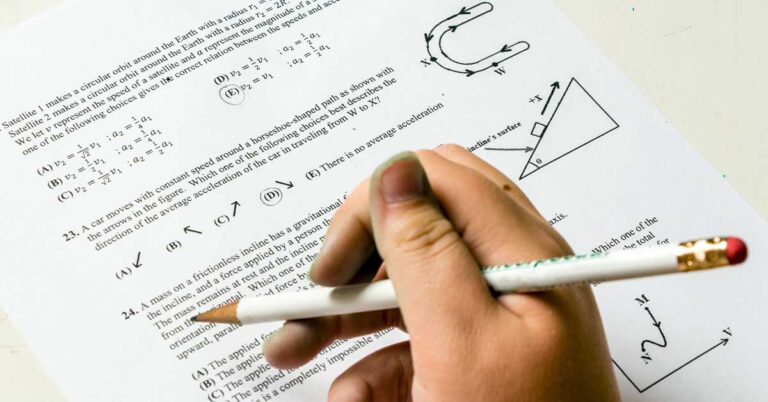How To Prepare For NExT Exam?

This Page will be updated as soon as NTA Declare the format and syllabus of NExT Exam
The FMGE / NEXT Exam were created by the NMC and are a requirement for students who wish to practise medicine in India. This exam is given to candidates who have earned an MBBS/MD/BSMD from a foreign medical university. Give permission to practise in India.
NEXT test is mandatory for MBBS graduates from India and as well as abroad. The National Medical Commission Bill 2019 was approved by the Lok-Sabha in August 2019. It mandates that MBBS/MD/BSMD graduates in India have to take the National Exit Test.
Three ways for FMGE / NExT Exam preparation
- By enrolling in a coaching/classes.
- Mobile applications like E-Gurukul, Marrow, Unacademy, Prepladder, and the live online classes offered by NLC.
- Self-study using your university/”standard” text books’ study materials
To begin with, enrolling in an institute is for a passive learner who wants to review or learn all they learned in college.
The mobile software is for students who want to do their coursework while remaining comfortable in their own homes.
The third is kind of the hardest, but not because it’s impossible, but rather because of how little time you’ll have between graduating and the FMGE / NExT Exam date.
It’s important to keep in mind that all of the applications have extensive information, making it challenging to finish them in the allotted time unless one has started with the apps in their last year. 95 percentage of members to a top mobile medical education app with headquarters in New Delhi reportedly failed to finish all of their content, according to an internal survey.
Better you start in your before 6 months. Now let’s start the topic.
19 Subjects to study for NExT Exam
- Anatomy.
- Physiology.
- Biochemistry.
- Microbiology.
- Pharmacology.
- Pathology.
- Forensic Medicine.
- Community Medicine (PSM).
- ENT.
- Ophthalmology.
- Surgery.
- Medicine.
- Obstetrics and Gynaecology.
- Anaesthesiology.
- Radiology.
- Paediatrics.
- Psychiatry.
- Orthopaedics.
- Dermatology.
We would advise against studying every subject in detail; instead, focus on the ones that will improve your grade.
FMGE / NExT Exam Marks
The allocation of marks by subject for the Foreign Medical Graduate Examination is shown below:
| Preclinical | Marks |
|---|---|
| 1 Anatomy | 17 |
| 2 Physiology | 17 |
| 3 Biochemistry | 17 |
| Paraclinical | |
| 4 PSM | 30 |
| 5 Pharmacology | 13 |
| 6 Pathology | 13 |
| 7 Microbiology | 13 |
| Clinical | |
| 8 Medicine | 33 |
| 9 Surgery | 32 |
| 10 Obs-Gyne | 30 |
| 11 Opthalmology | 15 |
| 12 Pediatrics | 15 |
| 13 ENT | 15 |
| 14 Radiology | 10 |
| 15 Forensic | 10 |
| 16 Orthopedics | 5 |
| 17 Psychiatry | 5 |
| 18 Dematology | 5 |
| 19 Anesthesia | 5 |
| Total | 300 |
Choosing Best Teachers
Medicine
It is imperative that you do the 120–140-mark courses in medicine, surgery, PSM, and obstetrics and gynaecology since they will greatly improve your grade. You must choose the best teacher for your preparation because medicine is a broad field. We would not advise choosing Dr.Rakesh Nair or Dr.Thameem. Instead, We would recommend Dr.Deepak Marwah, Dr.Ashish Kumar, or Dr.Rajesh Gubba (we absolutely love both of them, but it is too vast and not recommended with the limited time you have). Make brief notes for around 200 pages that can be revised in three hours, ideally two days before the exam.
Surgery
You must choose one of Dr. Rohan Khandelwal, Dr. Jai Arora, or Dr. Vineet Gupta, who are all renowned surgeons who can reduce Bailey into 200–300 pages. No other source is advised because each question in Surgery is taken directly from Bailey and Love’s. Short Practice of Surgery and there may be differences in the content. One of the subjects with the highest test scores is surgery, so prepare hard.
Community Medicine (PSM)
For PSM, Drs. Mukhmohit Singh, Ashwani Ranjan, or Vivek Jain are recommended because they directly copy Park’s notes and their notes are more than enough for your preparation.
Obstetrics and Gynaecology
We suggest Dr. Prassan Vij sir’s offline classes for O&G and Dr. Sakshi Arora’s. Obs&Gyne is a high-scoring subject, thus you should strive for a score of over 80% in the exam, according to Hans mam’s notes/videos, which every question was drawn from.
Without reading these four subjects, you are committing harakiri, and unless you can handle the brief subjects, the outcome is probably not going to be good.
ENT / Ophthalmology
Just reading Dr. Rajiv Dhawan sir’s notes is more than sufficient for ENT. Since ophthalmology is one of my weaker subjects and we suggest roughly seven notes and videos from teachers, we don’t advise doing this act as it is quite risky. Keep to one source, and it will always be accurate.
Anatomy and Biochemistry
The best notes for anatomy and biochemistry are those written by Dr. Azam sir. In terms of orthopaedics, dermatology, psychiatry, radiology, and anaesthesia, you will practise these more or less in surgery and medicine, so there is no cause for anxiety.
Forensic
Try reading Dr. Magendran sir’s or Dr. Akilesh Raj Jhamad sir’s notes; both are excellent and everything is from their notes. Forensics is a subject that receives great marks. As an alternative, you can use the free, condensed forensic classes from NLC taught by Drs. Ashish Kumar and Paras Jamwal on YouTube.
Pharmacology
Pharmacology is a challenging subject, and while both Dr. Gobind Rai Garg and Dr. Ranjan Kumar Patel are excellent teachers, Our favoured Dr. Ranjan.
Physiology
Just stick to Dr. Ashish Kumar sir’s notes for physiology; they are more than sufficient. If at all possible, consider attending his offline classes. Dr. Krishna Kumar sir is another option we can suggest, as none of his teaching methods can be compared by anyone.
Pathology And Microbiology
Follow Dr. Aman Setiya sir’s notes on pathology; these are for beginners. You can also watch free image-based sessions with Dr. Preethi Sharma mam. Follow Dr. Preethi Sharma’s lessons or Dr. Sonu Panwar’s classes in microbiology; both are excellent options.
Paediatrics
We suggest to utilised Dr. Singaram Sir’s videos in Marrow, and they are really beneficial for both the exam and practise. You can also use Dr. Anand Bhatia’s classes, however in our opinion they are more focused on the exam than anything else.
FMGE / NExT Exam Pattern
FMGE (Foreign Medical Graduate Exam) is offered in June and December of each year. There is no upper age limit and the FMGE Screening Test allows for an unlimited number of attempts.
There are 300 multiple-choice questions (MCQs) on pre-, para-, and clinical topics from the FMGE Exam syllabus. Computer-based test (CBT) for foreign medical graduates contains both image- and video-based questions. The FMGE Exam has no negative marking.
There are 300 MCQs on the FMGE exam, which is divided into two 150-minute sessions with a lunch break in between. You therefore have one minute to respond to one MCQ.
To pass the Foreign Medical Graduate Examination, you must receive 50% of the possible points (i.e. 150 out of 300).
Exams for the FMGE/MCI screening test are much more challenging than they were in previous years. Long questions have replaced the earlier style of one-liners in the FMGE.
The Plan
Let’s stick to the plan; you have approximately 140 days to start from today. If you did your fundamentals well in your own university, 100–120 days should be more than enough time to prepare for this exam. Student who passed the first test had exactly 30 days of preparation, which was sufficient for them. Therefore, ignore any discouragement you may receive. Begin your planning right away and keep going covertly.
Tiny Tips For NExt Exam
Besides the four major fields of PSM, surgery, medicine, and obstetrics and gynaecology. If you don’t enjoy ENT and Opthal like others do, you should read Paediatrics instead because there are very few questions but it is a short subject and high score. You should also take forensic, ENT, and ophthalmology.
Be thorough while answering radiology questions because they frequently refer to the same topics or systems. You must choose the topics, read them, look at the PYQs, and mark the topics if you don’t want to learn how to unlearn.
An illustration, No matter what, the exam usually includes questions about severe brain injury, diabetes, and ECG. You must therefore be aware of what to read and what to avoid. Spending excessive amounts of time on topics with low reward yields is a disservice to your preparation.
Revision is crucial to your preparation, and you should have forty days to complete it all. The ideal number of revisions is three. However, a minimum of ten days of review is required; halt your preparation and focus solely on reviewing for the final fifteen days. We believe we have covered the most of the plan. Best of Luck to all future doctors.






